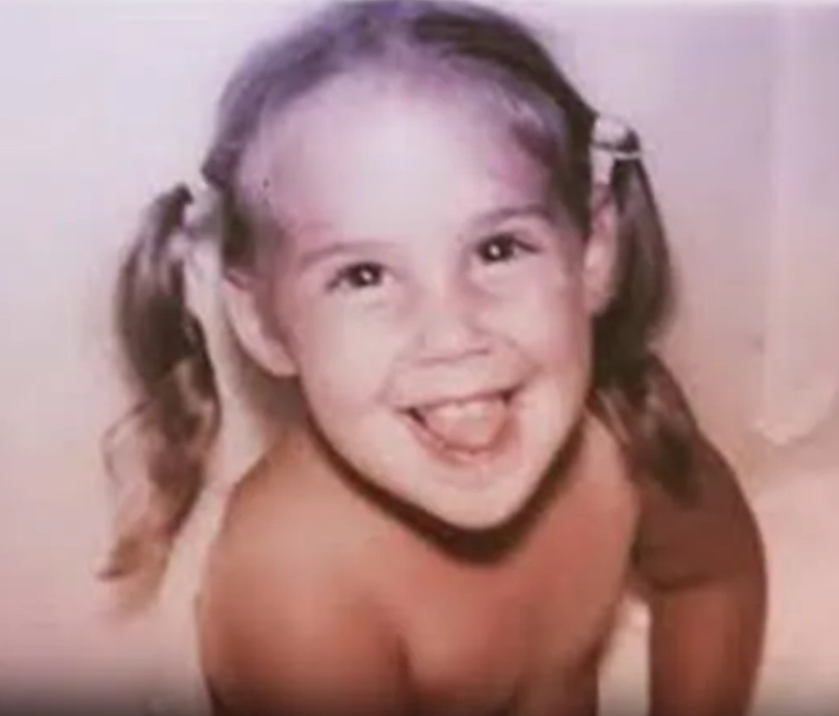Ricki Lake became one of the most recognizable faces on daytime television in the 1990s, but behind that fame was a life far more complex than audiences ever knew. Her success as an actress, singer, and talk-show host came alongside personal struggles, private heartbreak, and a lifelong effort to reclaim her confidence. What appears as resilience today was built through years of navigating pain, rebuilding herself, and refusing to let anyone define her except through her own strength.
Born in 1968 in Hastings-on-Hudson, New York, Ricki spent much of her early childhood living with her grandmother, Sylvia, who was the emotional anchor in her life. When Sylvia passed away in 1978, Ricki was only ten, already carrying burdens most children never face. She found solace in performance—singing in clubs at nine, dreaming of the stage, nurturing a spark that would become her path forward.
Ricki attended local schools before transferring to the Professional Children’s School in New York City, where she could pursue acting seriously. She later enrolled at Ithaca College, but her life changed when her agent encouraged her to audition for the lead role in John Waters’ Hairspray. With only a minor credit to her name, she walked into the audition and made history. Her performance defied Hollywood norms, proving that talent, warmth, and presence mattered more than fitting a traditional mold. Waters recognized something real in her, and their lasting friendship shaped her career.
As her film work expanded—including a role in Cry-Baby alongside Johnny Depp—her private life shifted. Her weight fluctuated, and she faced pressure from an industry obsessed with appearance. When roles slowed, she made the drastic decision to lose 100 pounds—not for glamour, but for survival in a world where standing out could be both a blessing and a curse.
In 1993, her life took a new turn on her own terms when she launched The Ricki Lake Show. Energetic and youthful, the program exploded in popularity, quickly rising to rival Oprah in influence, especially with younger audiences. The show celebrated authenticity—big personalities, emotional moments, unpredictability. Ricki became a cultural force, relatable and fearless, never pretending to be flawless even as fame came rushing in.
Her personal life remained complex. She married Rob Sussman in 1994, and they had two sons, Milo and Owen. But the events of September 11, 2001, while living in New York with her newborn, were transformative, prompting her to reclaim control over her life. After her divorce in 2005, she found love again with jewelry designer Christian Evans, only to face devastating loss when he passed away. Through that grief, her therapy dog, Mama, became a steadfast source of comfort.
Ricki eventually moved to Los Angeles, rebuilt her life, and earned an Emmy for the revived version of her talk show. She remarried in 2022, finding stability with Ross Burningham, entering a new phase of self-acceptance and self-care.
For decades, Ricki privately struggled with hair loss, concealing it under wigs and styling techniques. When she revealed her experience publicly, it became a powerful point of connection, inspiring thousands to share their own stories. She embraced her natural look, shaved her head, and allowed her hair to grow back without dye, speaking openly about the emotional and physical toll of stress, hormone changes, and treatments. She later underwent a lower face and neck lift—not out of vanity, but to feel at home in her own skin—and combined it with a self-directed, healthy weight-loss journey, proving again that her choices were her own.
After all the trauma, pressure, grief, and reinventions, Ricki Lake stands stronger than ever. Her story isn’t about fame—it’s about rebuilding yourself repeatedly, whether in the public eye or alone at home. It’s about finding light in the dark, embracing honesty over hiding, and living a life defined by courage, not circumstance.
